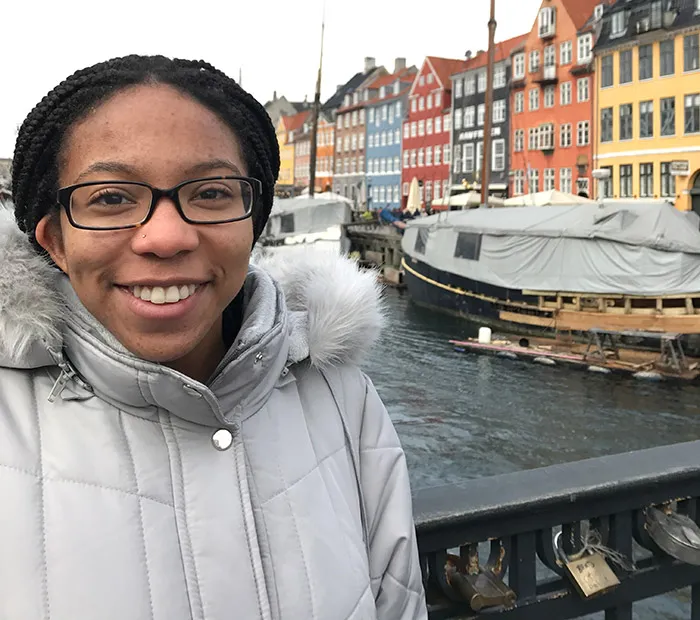Research and Projects
Cultural, Environmental and Global Studies
In the Department of Cultural, Environmental and Global Studies’ capstone course, seniors majoring in environmental studies, global studies, and sociology and anthropology develop a research-driven project that addresses a global issue at the local level and includes a review and synthesis of relevant scholarly literature. Through written analysis and a public presentation, the projects propose a defined solution with a measurable impact.
Kimberly Dennin, sociology and anthropology major
Ever since the removal of affirmative action in California from Proposition 209, the University of California system has struggled with increasing the enrollment numbers of underrepresented minorities on their campuses. In response to this, many of the schools are adopting different policies to help counteract the negative effects of Proposition 209.
Dennin examined the effects of Proposition 209 on the underrepresented minority population in the University of California system, specifically focusing on the University of California, Irvine. She looked at policy options that other universities have utilized in outreach programs, admissions policies and recruitment programs, and explored whether it would be feasible for these policies to be adopted at the University of California, Irvine.

Blanca Guzman, global studies major
Guzman explored Barcelona’s social and political commitment to become a haven for asylum seekers. She analyzed three specific policies: the duration of the citizenship process, humanitarian visas and the overall commitment Barcelona shows to its goal. Guzman highlighted the distinctions between refugees and economic migrants to demonstrate that not all asylum seekers may achieve international protections and may run the risk of undocumented or irregular migratory statuses in the process of seeking asylum.
The most important point of this policy paper is to demonstrate the disconnect between the city of Barcelona’s constituents’ sentiment towards wanting to be a sanctuary city for asylum seekers and the current policy available that does not reflect that same sentiment. There is a limited amount of scholarship or advertising of these humanitarian visas and transparency of these respective policies will better reflect constituent sentiment.

Genevieve Hoyt, global studies major
Bullfighting has grown to be a serious problem in Spain, bringing severe animal cruelty, economic controversies and a national identity crisis.
Synthesizing research from a variety of sources, Hoyt comprehensively evaluated the problems bullfighting causes in Spain and proposed two policy options that attempt to resolve these issues. While banning bullfighting entirely may seem like an easy fix, it would also provoke a number of issues, she wrote. Hoyt ultimately concluded that while bullfighting will likely come to an end on its own, anti-bullfighting groups should continue their protests in order to decrease popularity and encourage provincial bans.

Araz Khajarian, global studies major
Khajarian examined the function of Armenian schools in Damascus, Syria, in the light of the nation’s ongoing civil war. She discussed the history of Armenian schools in Damascus and the challenges they are facing. Much of Khajarian’s research came from interviews and records from committee members, students, parents and community members in Damascus.
Recommendations include, but are not limited to, investing more, globally, in order to raise more awareness in regards to the existence of Armenians as an ethnic group and a community. That, in turn, can lead to having more financial assistance towards Armenians in general, raising humanitarian and financial help towards the Armenians in Damascus and their schools.

Jessi McNeill, sociology and anthropology major
Through site visits and interviews, McNeill examined the global, health and social implications of food deserts in the state of Rhode Island. She assessed the inception of the food desert phenomenon and drew attention to three policy options for the state.
While there is sufficient research on food deserts in large cities like New York and Philadelphia, little information is available regarding the implications of food deserts and policy options available to provide low-income Rhode Islanders with healthy, affordable food.
McNeill recommended a strengthening and modification to current policies to better accommodate the lives of Rhode Islanders.
